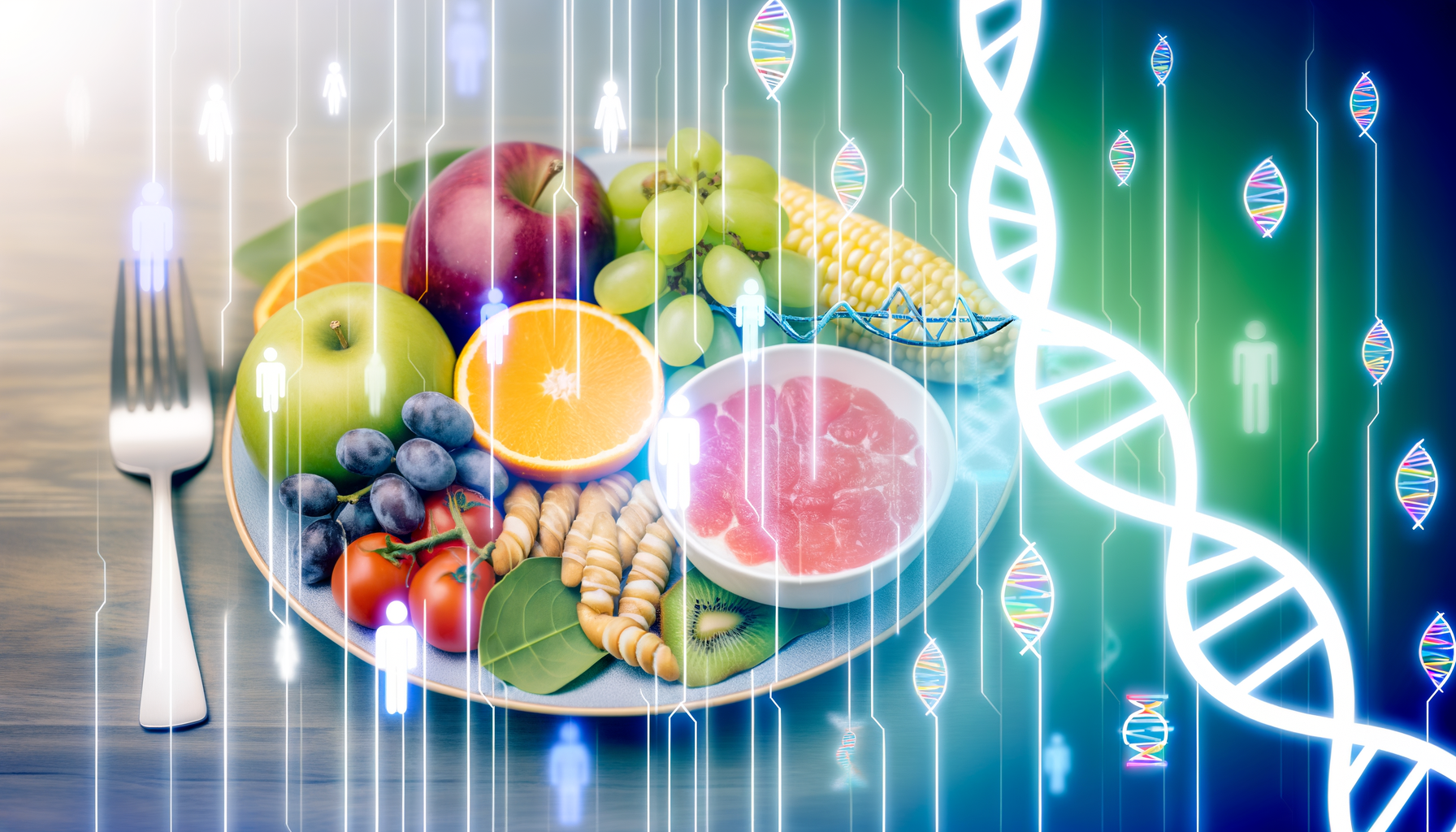Crispr gene therapies have revolutionized the field of genetic modification, offering new avenues for the treatment of various diseases, including diabetes and obesity. However, their effectiveness can be significantly enhanced by optimizing calorie balance as part of personalized health strategies. At Calorie Calculator Cloud, we understand the importance of integrating nutrition with genetic modification to improve health outcomes. In this blog post, we will delve into how calorie balance can optimize CRISPR gene therapies and explore the intersection of CRISPR nutrition, genetic modification, and personalized health.
Understanding CRISPR Gene Therapies
CRISPR, which stands for Clustered Regularly Interspaced Short Palindromic Repeats, is a powerful tool for genome editing. It allows scientists to edit specific genes within an organism’s DNA with unprecedented precision. Recently, CRISPR has been used to combat diabetes and obesity by altering the fate of fat cells. For instance, researchers have used CRISPR to modify adipocytes to burn more fat and glucose, thereby improving metabolic health. This approach involves transplanting CRISPR-edited human adipocytes into mice, which have shown significant improvements in glucose tolerance and reduced weight gain on high-fat diets.
Another application of CRISPR is in addressing obesity by enhancing the expression of certain genes, such as Sim1. CRISPR activation (CRISPRa) enables the up-regulation of these genes, which can rescue obesity phenotypes caused by haploinsufficiency. By targeting specific promoters or enhancers, CRISPRa demonstrates promise in reducing body fat content and lowering food intake without significant off-target effects.
Calorie Balance: The Key to Optimizing CRISPR Gene Therapies
Calorie balance is fundamental to maintaining health, especially when integrating CRISPR gene therapies. The principle of calorie balance involves consuming the right amount of calories to support the body’s needs without leading to excess weight gain or loss. For individuals undergoing CRISPR gene therapy, ensuring an appropriate calorie intake is crucial as it supports the optimal functioning of the modified cells.
For example, if CRISPR is used to enhance the burning of fat, a diet with a balanced calorie intake can support the gene therapy’s efficacy by providing the necessary energy substrates while avoiding overloading the body with excess calories. Moreover, maintaining a healthy diet can reduce the risk of side effects associated with gene editing and improve overall metabolic health.
Nutritional Considerations for CRISPR Recipients
When planning a diet for individuals undergoing CRISPR gene therapies, several nutritional factors must be considered:
- Macronutrient Balance: Ensuring an adequate balance of proteins, carbohydrates, and fats is essential. This balance supports the functioning of modified cells and maintains overall health.
- Micronutrient Intake: Vitamins and minerals play critical roles in cellular health and function. Adequate intake of micronutrients can support the efficacy and safety of gene therapies.
- Hydration: Proper hydration is vital for maintaining cellular functions and supporting the process of gene editing.
By using tools like the Calorie Calculator Plans, individuals can tailor their calorie intake to support their health goals and optimize the outcomes of CRISPR treatments.
Personalized Health and CRISPR
Personalized health approaches are increasingly important when considering CRISPR gene therapies. Each individual’s genetic makeup and health status are unique, and their nutritional needs may vary accordingly. Thus, integrating personalized nutrition plans with CRISPR therapies can enhance their effectiveness and safety.
Companies such as CRISPR Therapeutics and ViaCyte are pioneering CRISPR applications in clinical settings. Their work involves not only gene editing but also ensuring that modified cells function optimally within the host environment. This includes considering how diet impacts the health and efficiency of these cells.
Case Studies: CRISPR and Nutrition Integration
Several research studies highlight the potential benefits of integrating CRISPR gene therapies with nutritional modifications. For instance, a study involving diabetic mice showed that CRISPR-modified fat cells not only improved glucose tolerance but also responded better to dietary changes. This demonstrates the importance of calorie management in supporting the efficacy of gene therapies.
In human clinical trials, maintaining a balanced diet is often advised to support treatment outcomes. This is particularly true for conditions like obesity and diabetes, where dietary management is a core component of treatment. By optimizing calorie intake and nutritional balance, individuals can potentially enhance the benefits of CRISPR gene editing.
Future Directions in CRISPR Nutrition and Personalized Health
As CRISPR gene therapies advance, it is crucial to continue exploring how nutritional strategies can optimize their efficacy. This involves understanding how different dietary components influence gene expression and cell function. Potential future directions include:
- Genetic Nutrition Testing: Developing tests that identify genetic variations affecting nutritional needs and how they interact with CRISPR modifications.
- Personalized Dietary Planning: Creating diet plans tailored to an individual’s genetic profile and health status to enhance the outcomes of gene therapies.
- Cellular Nutrition Research: Investigating how specific nutrients impact the health and functioning of CRISPR-modified cells.
Companies such as Illumina and Intellia Therapeutics are already exploring advanced genomics and gene editing techniques. Their work could pave the way for more personalized approaches to health management, including diet-based interventions.
Moreover, the integration of calorie balance and CRISPR gene therapies could revolutionize the treatment of diseases like diabetes and obesity, as seen in research by the Joslin Diabetes Center and the University of Massachusetts Medical School. These institutions are at the forefront of research into brown adipose tissue and its role in metabolic health.
Conclusion and Moving Forward
In conclusion, integrating calorie balance into CRISPR gene therapies holds great promise for enhancing their effectiveness and safety. By understanding how nutrition impacts CRISPR-modified cells and tailoring diets accordingly, individuals can optimize the outcomes of these treatments. As research continues to uncover the complex interplay between genetics, diet, and health, tools like Calorie Calculator Cloud will play a crucial role in helping individuals manage their calorie intake and support their health goals.
Whether you are considering gene therapy or simply looking to improve your health, understanding the role of nutrition in supporting genetic modifications is essential. By embracing this holistic approach to health, we can unlock new possibilities for personalized medicine and improve health outcomes globally.
Visit Calorie Calculator Cloud to explore how you can manage your calorie intake effectively and support your journey towards better health.








